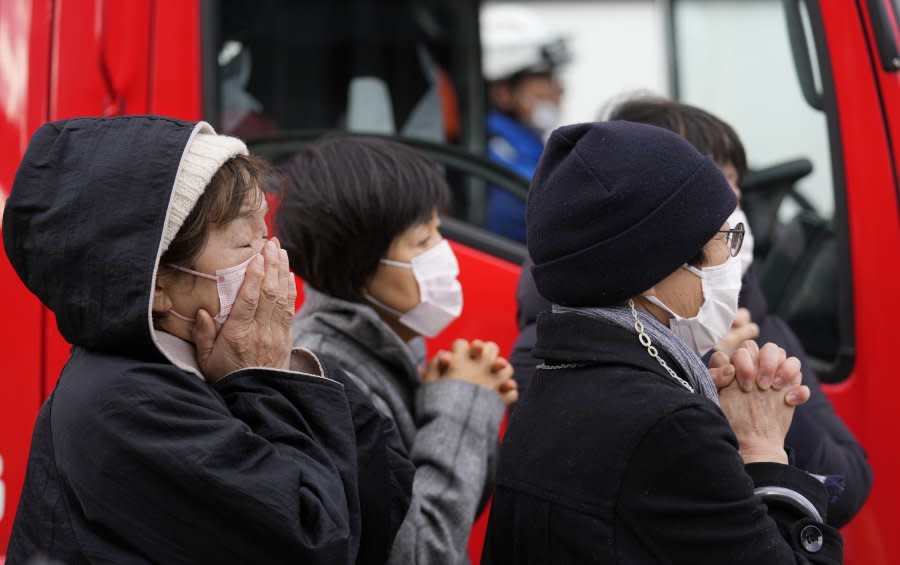Death toll from Japan earthquake climbs to 94; hundreds still missing as hope wanes

- Oops!Something went wrong.Please try again later.
Jan. 5 (UPI) -- The death toll from a strong earthquake that struck Western Japan's Ishikawa Prefecture on New Year's Day climbed to 94 on Friday as hope of finding more than 200 people still missing dwindled.
Authorities said the whereabouts of 222 people, the majority located in Wajima and Suzu cities, were unknown as of 2 p.m. local time Friday.
The announcement came a day after Ishikawa Gov. Hiroshi Hase said they were facing the critical "72-hour wall" to save the lives of those missing -- a deadline that ended late Thursday.
The 7.6-magnitude temblor hit the Noto Peninsula of Ishikawa Prefecture on Japan's main Honshu island at about 4:10 p.m. local time Monday, and the death toll has continued to rise since, reaching 94 by Friday afternoon.
A total of 464 people were also been recorded as injured due to the earthquake, several of them severely.
The number of completely destroyed homes stood at 308 with another 37 considered partially damaged.
Prime Minister Fumio Kishida remarked Friday morning that 295 people have been rescued while calling on responders to keep searching, remarking that a woman in her 80s was still rescued after the 72-hour window.
"There are still areas where rescue efforts are still difficult, but we ask that you do not give up and continue with your persistent rescue efforts," he said, according to a release from his office.
The announcement also comes ahead of a three-day holiday in Japan, and officials are calling on the public to avoid unnecessary travel on the Noto Peninsula as roads are congested and will impede rescue and humanitarian efforts.
"We strongly request that you refrain from unnecessary and non-urgent travel," the prefecture government said.
Japan's Self-Defense Forces doubled its rescue operations personnel to 4,600 on Friday, Kyodo News reported.
Meanwhile, hundreds of people have been cut off from supplies and aid by damaged rooms. Some 30,000 homes were also without power and 80,000 were without running water in Ishikawa.
Kishida acknowledged the situation in his Friday morning remarks, stating large vehicles have recently gained access to the hard-hit Wajima and Suzu cities, which he called "a major achievement."
"It has also become possible to transport gasoline by tank truck. However, many roads are still damaged, impeding the transport of goods, equipment and personnel," he said. "Power outages in Nanao City and Shiga Town have been largely eliminated. In order to accelerate the recovery of lifelines north of Anamizu Town, please do your best to restore transportation routes."

